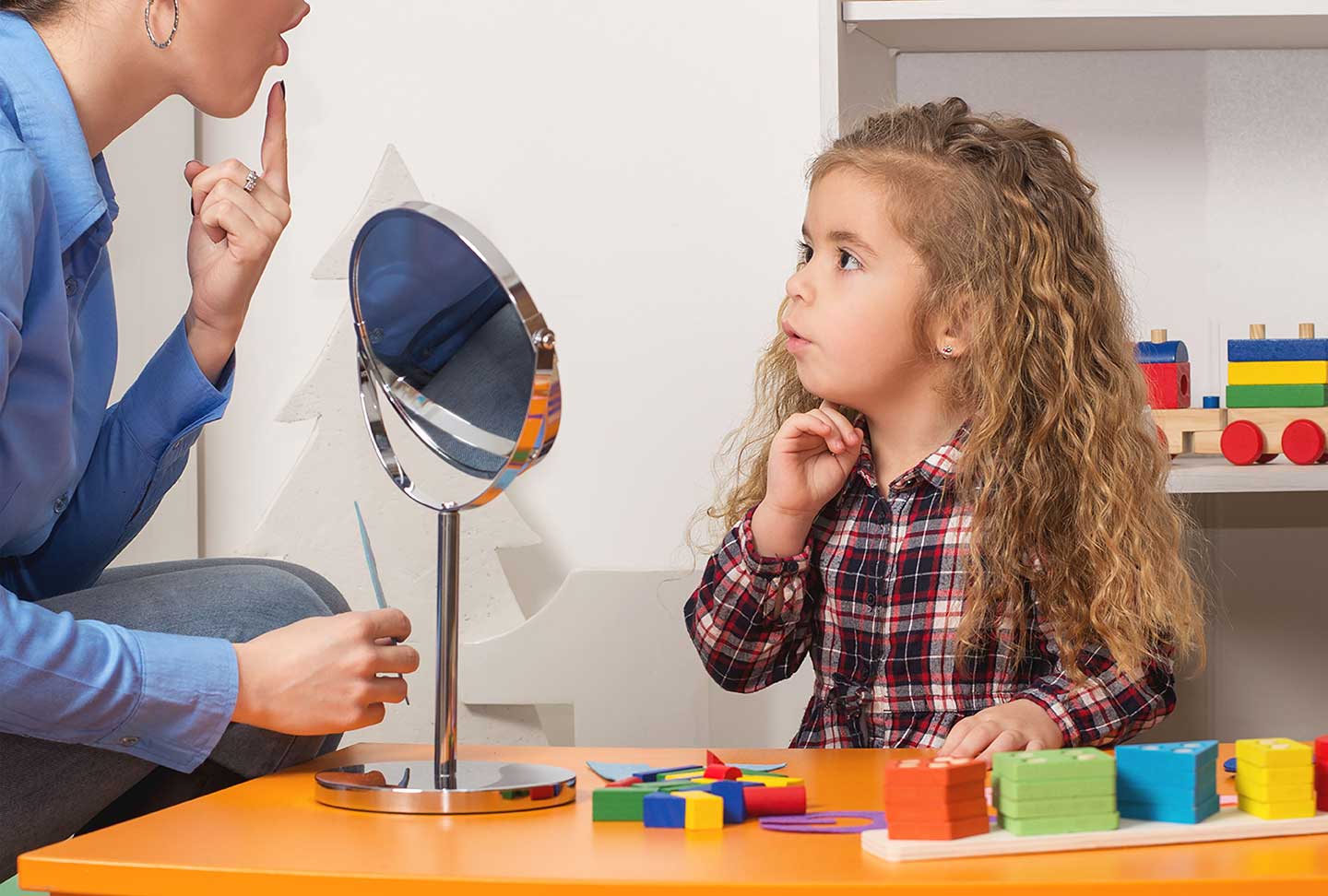Speech Therapy FAQs
Therapy For Life provides a true multidisciplinary team approach to your child’s care here in Houston. Each speech therapy suite is led by a supervising lead Speech-Language Pathologist who manages the team of speech therapists and children. Therapy For Life’s therapy teams collaborate with other disciplines and parents to ensure your child’s care plan is of the highest quality in Houston.
Therapy For Life offers a prestigious postgraduate-level teaching program and is affiliated and contracted with Baylor University, Lamar University, and other programs across Texas and the U.S. It is wonderful to see a licensed, certified speech therapist working with your child while a postgraduate student assists. Doctorate and Master level professors manage the graduate students as they earn grades and fulfill their educational obligations with our team as their teachers and role models. We are very proud of our highly respected and highly esteemed postgraduate teaching program, which adds to the high level of care your child receives.
At Therapy For Life, your child will receive 1:1 direct therapy with a speech therapist. Some of the therapy may be at a workspace table and other parts of therapy may be in learning “play” centers in the room, specifically designed for children to participate in engaging activities with their therapist. Much like our therapy model throughout our multidisciplinary team, we believe children learn best around peers and through developmentally appropriate activities. We do not place children in isolated rooms with therapists.
You know your child best. If you, your child’s teacher, or your healthcare provider suspects your child has or might have a speech or language problem, a speech/language evaluation is recommended. Evaluations are conducted by a speech-language pathologist and will help identify the underlying cause and necessary plan of care for speech/language therapy.
Speech therapy helps improve speech, language, feeding, and social skills. It helps with early language skills, voice and sound production, comprehension, fluency, clarity, and expression.
A Texas state licensed and certified speech-language pathologist diagnoses problems with communication and feeding and treats speech delays, speech disorders, language delays, language disorders, feeding and swallowing difficulty, and problems with social skills and communication. We also treat children with developmental delays caused by injury or illness. Your child’s healthcare provider may refer you to a speech-language pathologist for a variety of reasons.
Speech therapy is beneficial for children with communication and feeding problems. It can also help children with hearing impairments or those who have difficulty swallowing. Your child’s healthcare provider may recommend speech therapy to help with:
- Apraxia. Children with apraxia know what they want to say, but have trouble forming the sounds or words. They may also struggle with putting words together, reading, writing, swallowing or other motor skills. Our team provides occupational therapy (OT) to support these needs as well.
- Articulation disorders. Children with articulation disorders produce incorrect sounds or incorrect sounds in words. Forming sounds can be very difficult and sometimes children substitute one sound for another — like saying “wed” instead of “red”. Early intervention speech therapy is key to helping your child talk and for their communication to be understood.
- Expressive disorders. Children with expressive language disorders have difficulty getting words out, formulating sentences, and conveying their thoughts.
- Fluency disorders. Fluency disorders disrupt the speed, flow and rhythm of speech. Stuttering (speech that’s interrupted or blocked) is a fluency disorder and can be very frustrating for children who experience this.
- Receptive disorders. Children with receptive language disorders have difficulty comprehending or processing what others are saying. As a result, they may have a limited vocabulary, trouble following directions, or they may seem uninterested in conversation.
- Resonance disorders. Conditions affecting the oral or nasal cavities may block airflow and change the vibrations responsible for sound. Resonance disorders are linked to cleft palate, swollen tonsils and other conditions that affect the structure of the oral mechanism.
- Aphasia. Children with aphasia can have difficulty understanding verbal and written language/reading, writing, and speaking. This can develop when areas of the brain that process language are injured or damaged.
- Dysarthria. Occurs when muscles that control speech become weak due to an illness or injury and can result in slow, slurred speech production. Children can improve their speech with speech therapy. This is commonly seen in children with Down’s syndrome, Guillain-Barre syndrome, Cerebral Palsy, or acquired injuries.
- Cognitive-communication disorders. When the area of the brain that controls thinking ability is damaged, it can result in difficulty communicating. Children with cognitive-communication disorders may have issues with listening, speaking, problem-solving, and memory.
Yes! Nearly 1 in 12 children in the U.S. have problems related to speech, language, feeding, and voice. Speech therapy is an effective treatment for speech and communication problems. Scientific studies that look at the effectiveness of speech and language therapy for children, continue to support therapy can produce significant improvement in performance.
- School readiness
- Improved language skills (understanding and expression)
- Improved speech skills (communication)
- Improved self-esteem
- Increased independence
- Improved health, hydration, and weight maintenance
- Increased variety of food intake
- Overall improved quality of life
Source: Cleveland Clinic




